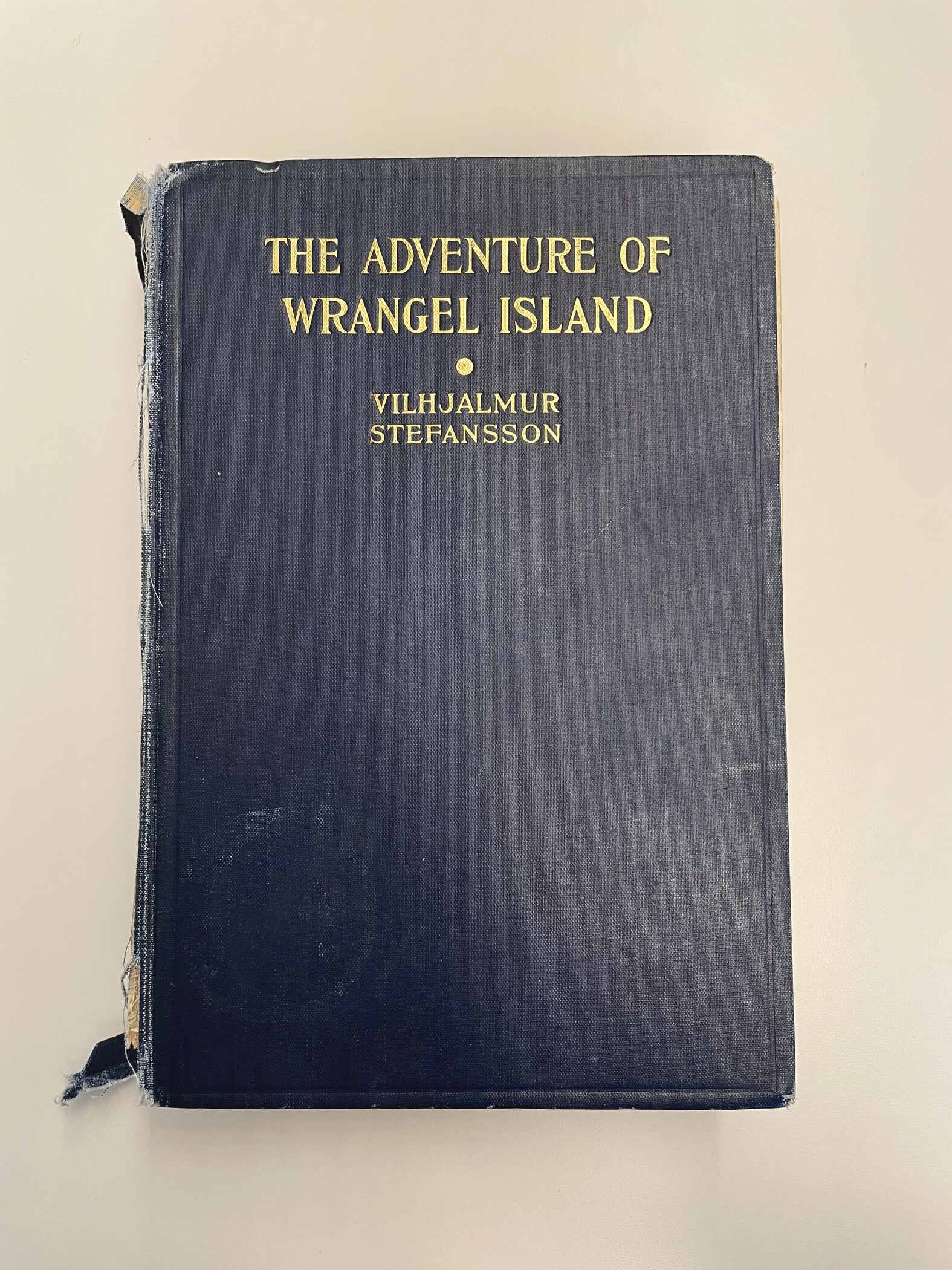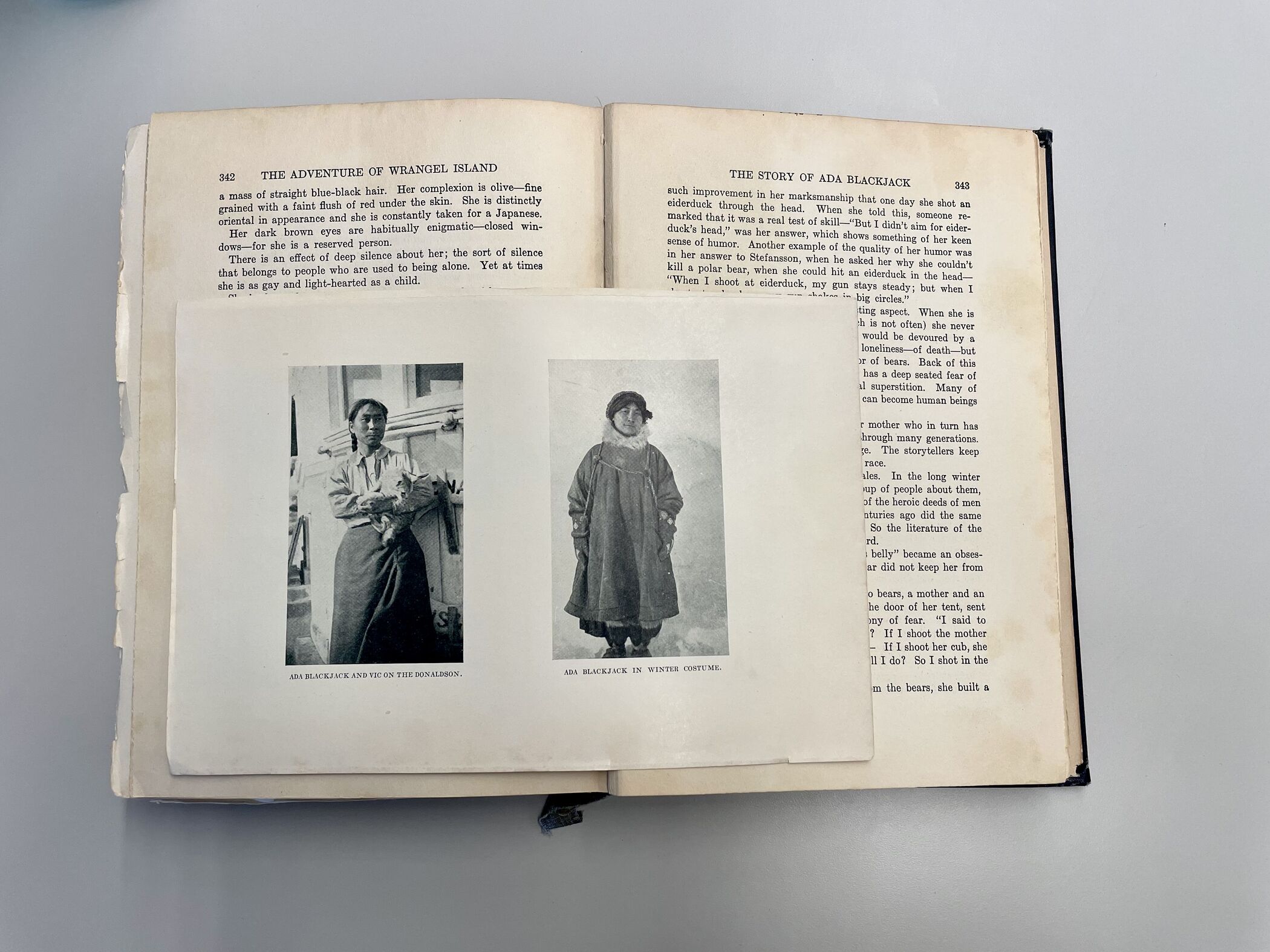The Adventure of Wrangel Island: Ada as dedicated mother? Resourceful heroine? Unsophisticated survivor?
The Adventure of Wrangel Island, written by Vilhjamur Stefansson, synthesizes one Wrangel Island narrative out of the many involved primary sources. Ada Blackjack, as the sole survivor of the expedition, attracted a great deal of public interest, and we can presume that public perception of Ada was in part informed by Stefansson’s portrayal of her in this book.
Stefansson’s writing mixes both admiration for Ada’s perseverance with a more demeaning presentation of her as reserved, taciturn, irrational, and simplistic. He writes that “Blackjack had mastered her environment so far that it seems likely she could have lived [on the island] another year” (290), while also mentioning that “unfortunately, but inevitably, she had the superstitions of her people” (289) and harbored a “eskimo fear of polar bears,” despite Stefansson’s argument that when armed with a gun, “there is scarcely more danger in a bear than there is in a duck” (290). Perhaps his amazement at her survival stems from an underestimation of her?
Simultaneously, Stefansson includes a character sketch of Ada written by her friend Inglis Fletcher, where some more genuine respect for Ada shines through. Fletcher writes that “there never seemed to be any negative sense in Ada,” (344), and remarks at Ada’s humility in never seeing herself as a hero in the context of the expedition. “Love of her son kept her at her task of living,” Fletcher writes, revealing that Ada’s only motivation for agreeing to the Wrangel Island expedition was to earn enough money to take her son, Bennet, out of a children’s home.
Both Stefansson and Fletcher are clear in refuting Noice’s claim that Ada played “a mean role in a grim tragedy she could have averted” - that is, Knight’s death. Fletcher emphasizes how hurt Ada was by this accusation, writing that Ada was horrified by the idea that people would think badly of her. Stefansson writes, “I still maintain that Ada Blackjack was a real heroine and that there is nothing to justify me in the faintest belief that she did not do for Lorne all that she was able to do” (392).


